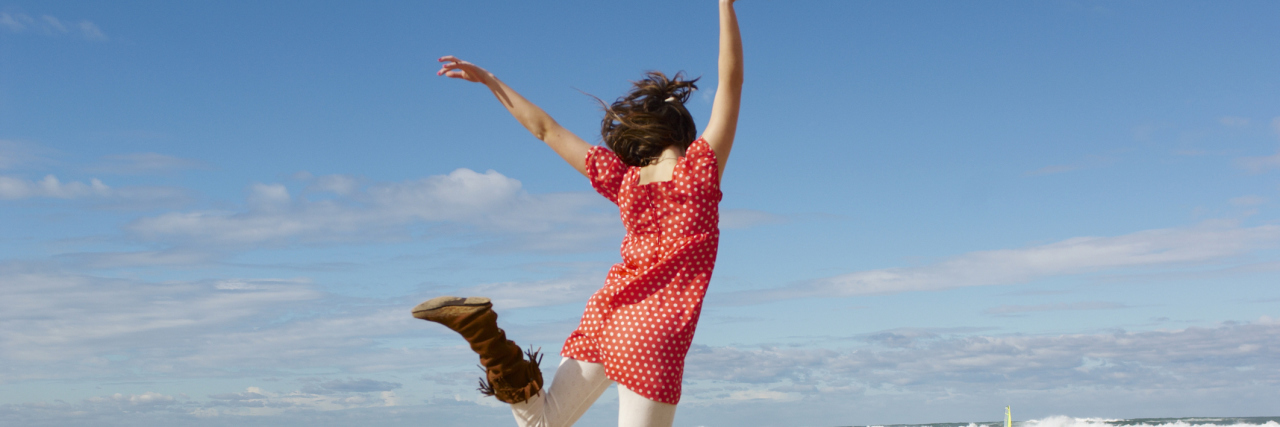I didn’t receive my Asperger’s syndrome diagnosis until my late 20s. So until then, I was trying to fit my autistic square peg into a neurotypical round hole because I didn’t know any better. What I did know from an early age was that the arts were my everything — my way to express myself, my way to feel connected and my way to feel truly alive.
I was mute most of the time until my early 20s (when I began taking medication and attending therapy for social anxiety), particularly in school and anytime I was in groups with other people my age. I had the ability to talk, but it was like I was frozen anytime I tried to talk outside of my home. As you can imagine, this was very frustrating. Art became my lens through which I saw the world, and it seemed to be the only way I could express myself in it.
When I was really little, I began making up stories, coloring pictures of the characters and what I wanted them to do. Once I knew how to write, the floodgates were open; I spent countless hours writing story after story. I created my own series, emulating my beloved Baby Sitters’ Club, complete with logos and copyright information on the inside covers. By the time I was 11 I had probably written 400 stories.
That was when my next artistic love affair began. After I made it a goal to make the competition dance team at a new studio in town, dancing became my new obsession. I had danced since I was 2, but this was a whole new level of focus. Things were starting to get more difficult socially as adolescence crept up, and I leaned on dance as my crutch. In addition to the competition classes, my friends and I exercised our creative muscles, choreographing dances in my parents’ basement to our favorite Spice Girls and Hanson songs.
As I got older, I began to go down to the basement of our house and dance whenever I was stressed. I turned off all the lights and put on music that expressed how I was feeling, whether it was pop, rap or rock. I didn’t realize it at the time, but that was my release of the stress of living with undiagnosed autism. I would go to school during the day and feel a tidal wave of sensory stimulation and go into fight, flight or freeze mode all day long. When I got home I needed to release the energy that had built up.
I continued dancing on my own to relieve stress, but left my dance studio once I hit high school because I had begun to write songs. I was elated; I felt like I had found a way to combine my love for music and dance with my desire to express myself verbally that had been so difficult to do for so long. I could edit my words as much as I liked, and I could express emotion through the melodies — the perfect combination. I was hooked, and still am now 17 years later. In fact, I am pursuing a professional songwriting career.
A lot of the problems I have had in my life have stemmed from the communication difficulties that come with autism — difficulties dating, misunderstandings and of course the mutism are a few. And the anxiety, and at times depression, I have felt are results of those difficulties. A study by Tony Attwood showed a 65 percent lifetime prevalence of mental health conditions like anxiety and depression in a group of adolescents and adults with Asperger’s syndrome. If it wasn’t for the arts, I know I would be struggling greatly from anxiety and depression today.
What I crave as an autistic person, just as much as anyone, is to connect with others, to be heard and to be understood. I will be forever grateful that the arts have given me that opportunity, and given me a voice.
We want to hear your story. Become a Mighty contributor here.
Thinkstock photo by Bec Parsons.

